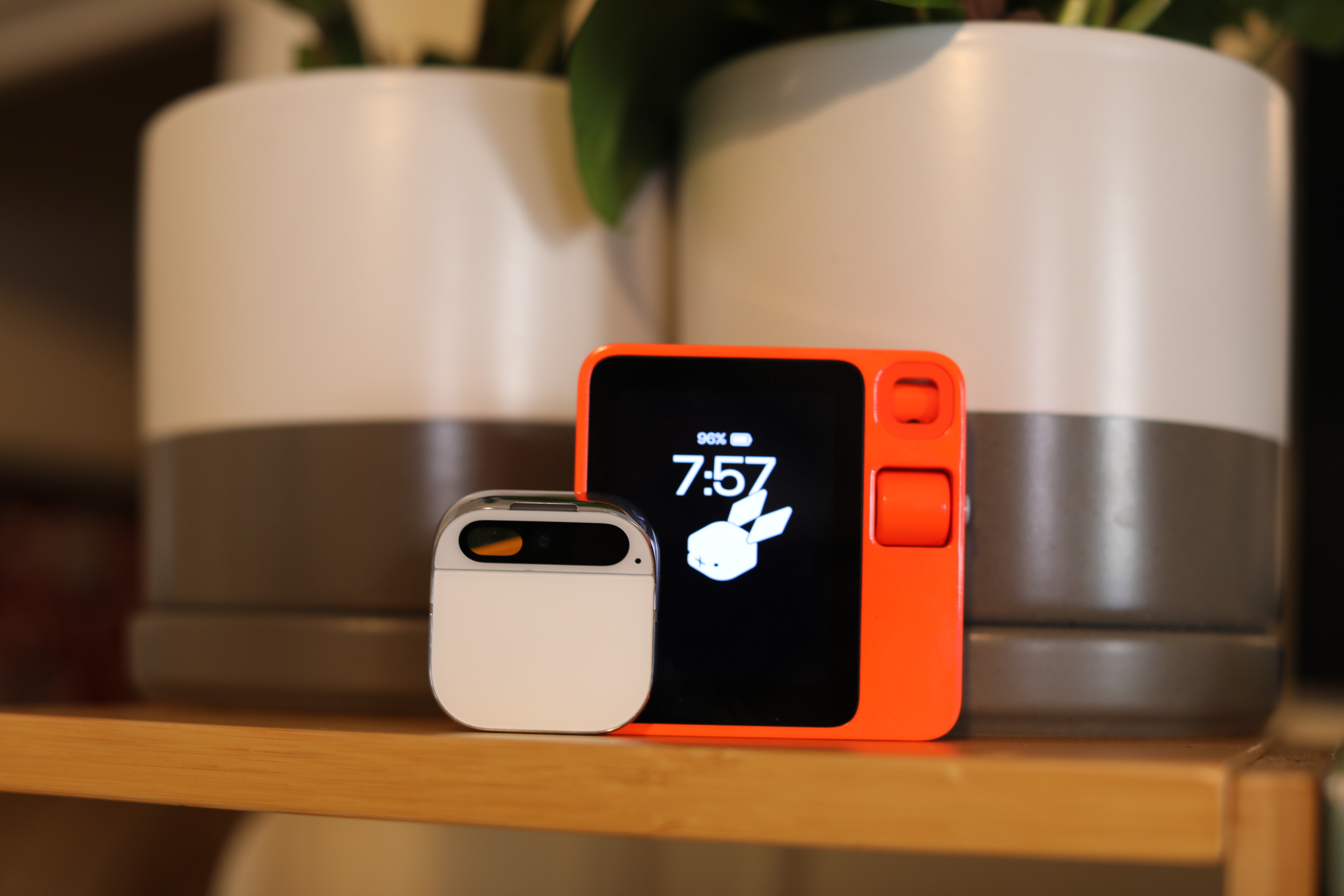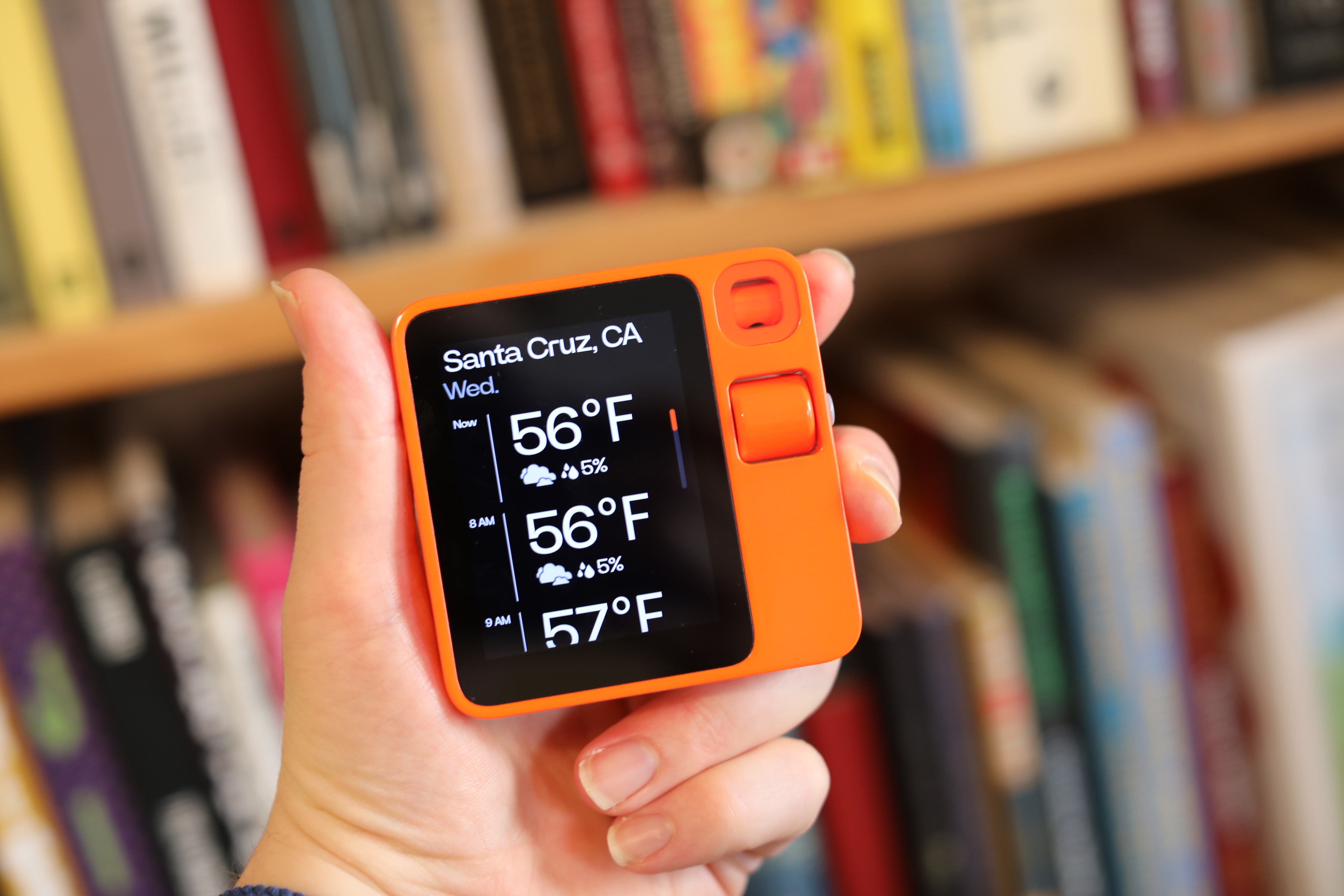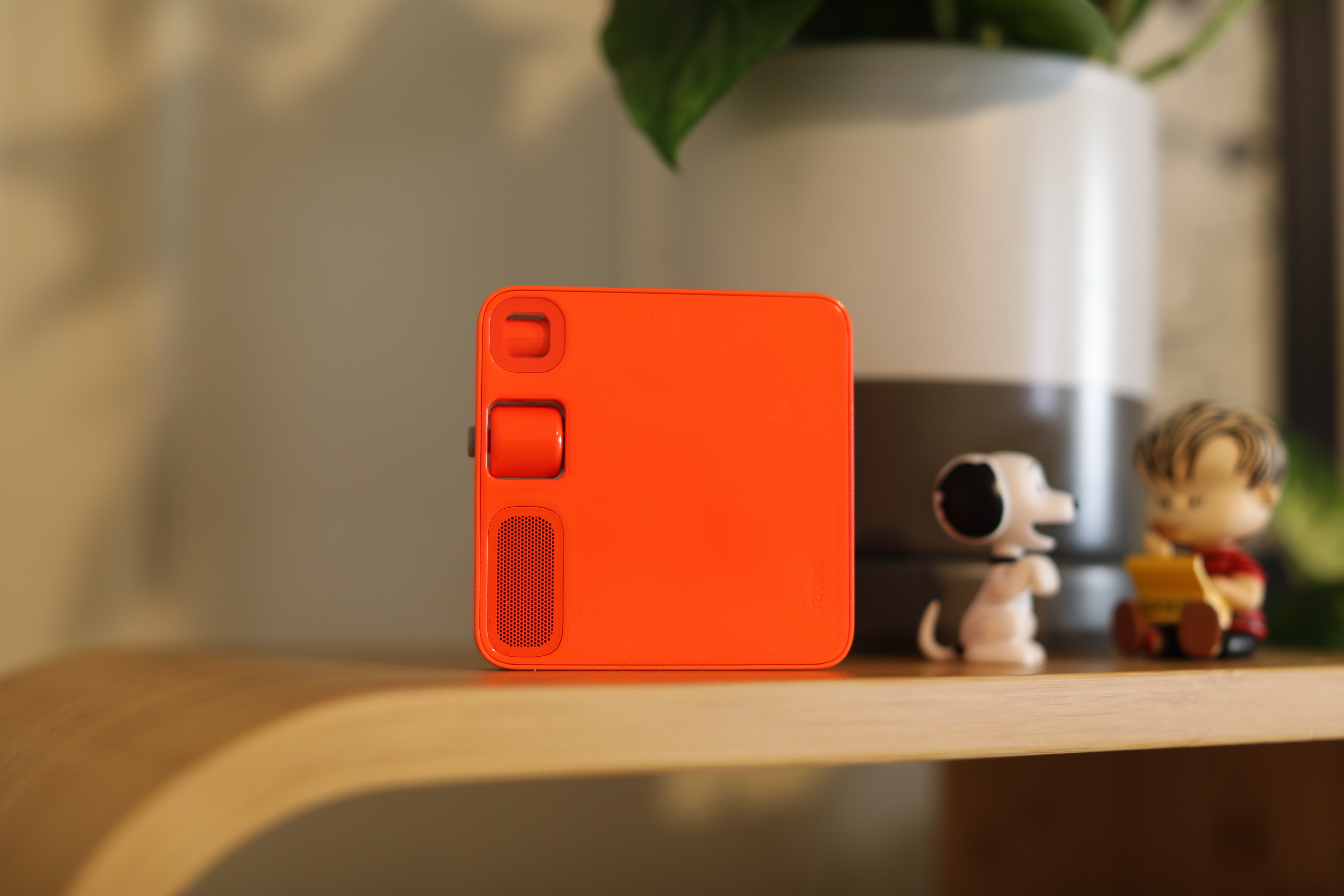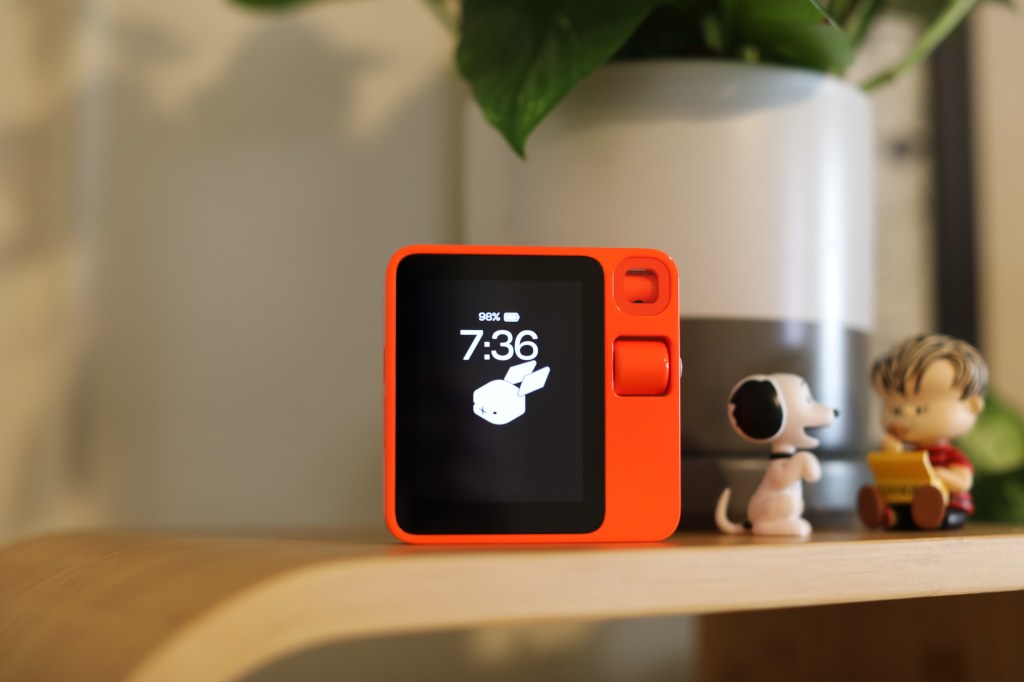If there’s one overarching takeaway from last night’s Rabbit R1 launch event, it’s this: Hardware can be fun again. After a decade of unquestioned smartphone dominance, there is, once again, excitement to be found in consumer electronics. The wisdom and longevity of any individual product or form factor — while important — can be set aside for a moment. Just sit back and enjoy the show.
Despite flying out of an airport on a monthly basis, last night was my first night at the TWA Hotel nestled among the labyrinthian turnoffs of JFK’s Terminal 5. One rarely stays at hotels where they live, after all. The space is a nod to another era, when people dressed up to board flights and smiling chefs carved up entire legs of ham.

A rented DeLorean decked in Rabbit branding was parked out front, serving as a postmodern homage to the event’s decade-agnostic embrace of the past. Less glaring was the Ritchie Valens song sandwiched between Motown hits on the elevator speakers as we rode three floors down to the subterranean event space.
Hundreds of attendees were already lined up by the time I arrived at the space. Familiar faces from the world of tech journalism mulled about, but a considerable number were excited early adopters. The two groups were distinguished with “Press” and “VIP” lanyards, respectively. A man standing in front of me in the queue volunteered that he had flown out from Los Angeles specifically for the event.
Like Humane, the team at Rabbit is clearly invested in spectacle. The approaches are similar, but different, with the former investing a good deal of funding into viral videos, including an eclipse teaser that clearly fancied itself a kind of spiritual successor to Apple’s famous “1984” spot. One gets the sense, however, that Rabbit genuinely didn’t anticipate just how much of a buzz the company’s CES 2024 debut would generate.
“When we started building r1, we said internally that we’d be happy if we sold 500 devices on launch day,” the company posted on X. “In 24 hours, we already beat that by 20x!”
It would have been difficult to time the release better. Generative AI hype had reached a fever pitch. Humane had unveiled but had yet to release its Ai Pin. Intel was declaring 2024 the year of the AI PC and soon enough, Samsung would be doing the same for the smartphone. Apple, meanwhile, was promising its own big news on that front in the coming months.

When putting on a big show, a tech company also needs to dress the part. The focus on product design is another key parallel between Rabbit and Humane. While the form factors are vastly different, both the Ai Pin and R1 are testaments to value of industrial design. For its part, Rabbit took a page out of the Nothing playbook, contracting the stalwarts at Teenage Engineering to create a wildly original-looking product. Indeed, the R1 looks as much like an art piece as anything. It’s a squat, orange object — something you might want to mount to the handlebars of your bicycle for inclement weather.
While the Ai Pin’s defining physical characteristic is its absence of a display, Rabbit embraces the screen — if only modestly so. The display is a mere 2.88 inches and at times feels almost incidental to the cause. That goes double for its touch functionality. While, much like the Ai Pin, a bulk of your interactions are performed with voice, a combination analog scroll and button mostly fill in the gaps.
Beyond entering a Wi-Fi password, there aren’t a ton of reasons to touch the screen. That’s for the best. The most monumental and ongoing task facing the nascent AI device space is justifying its existence outside of the smartphone. After all, anyone with a half-decent mobile device (and plenty of non-decent ones) has access to generative AI models. These are largely accessed via browsers or stand-alone apps at the moment, but models like ChatGPT and Google Gemini will be increasingly baked into mobile operating systems in the months and years to come.

When I posed the question to Humane, co-founder and CEO Bethany Bongiorno offered the following anecdote: “[Humane’s co-founders] had gone to this dinner, and there was a family sitting next to us. There were three kids and a mom and dad, and they were on their phones the entire time. It really started a conversation about the incredible tool we built, but also some of the side effects.”
The Ai Pin’s absence of a screen is, in essence, a feature. Again, there’s plenty of cause to question the wisdom and efficacy of that design decision, but regardless, it’s crucial to the product. It’s worth noting that at $199, the barrier of price justification is significantly lower than the Ai Pin’s asking price.

The truth is that, at this early first-gen stage, novelty is a massive selling point. You either see the appeal of a devoted LLM accessing device or you don’t. Rabbit’s relatively affordable price point opens this world quite a bit. You should also consider that the R1 doesn’t require a monthly service fee, whereas Humane is charging you $24/month for functionality. That, coupled with the (albeit limited) touchscreen and really stellar design, and you can understand why the product has taken a good bit of wind out of the Ai Pin’s sails.
Neither of the devices trade in apps the way modern smartphones do. You interact exclusively with the onboard operating system. This can, however, be connected to other accounts, including Spotify, Uber, Midjourney and DoorDash. The system can take voice recordings and do bidirectional translations. The system can also gain environmental context via the onboard camera.
The Rabbit R1's AI vision feature is a mixed bag. It also varies quite a bit from capture to capture, including the details it recognizes and the context it offers. (Apologies for the construction noise) pic.twitter.com/lf7WcOt8Rz
— Brian Heater (@bheater) April 24, 2024
Among the first tests I threw at it was offering a description of my bookshelf. I pointed the camera at a row of four hardcovers: “Moby Dick” by Herman Melville; “The Barbary Coast” by Herbert Asbury; “Understanding Media” by Marshall McLuhan; and “Dodsworth” by Sinclair Lewis. It universally had difficulty with the last book — understandably, as it was the least clear of the group.
It largely spotted and understood what it was seeing with “Moby Dick,” calling it a “classic” and sometimes offering a brief synopsis. It recognized the middle two books 50% to 75% of the time. It also attempted to offer some context as to the curatorial choices and sometimes went out on a limb to compliment said curation.
There were times, however, when the context was a bit much. I asked the R1 when the Oakland A’s are playing (I added the city after an initial inquiry for just “A’s” showed up as “Ace”), and it gave me tonight’s game time, before running down a list of the next 10 or so teams they’re playing. But hey, I’m a lifelong A’s fan. I relish such defeats.

Something worth noting for all of these early-stage write-ups is that these sorts of devices are designed to improve and customize results the more you use them. I’m writing this after having only picked up the device last night. I’m going to send it off to Devin for a more in-depth write-up.
Having only played around with the R1 for a few hours, I can definitively tell you that it’s a more accessible device than the Humane Pin, courtesy of the touchscreen and price. It doesn’t solve the cultural screen obsession Humane is interested in — nor does it seem to be shooting for such grandiose ambitions in the first place. Rather, it’s a beautifully designed product that offers a compelling insight into where things may be headed.





























Comment